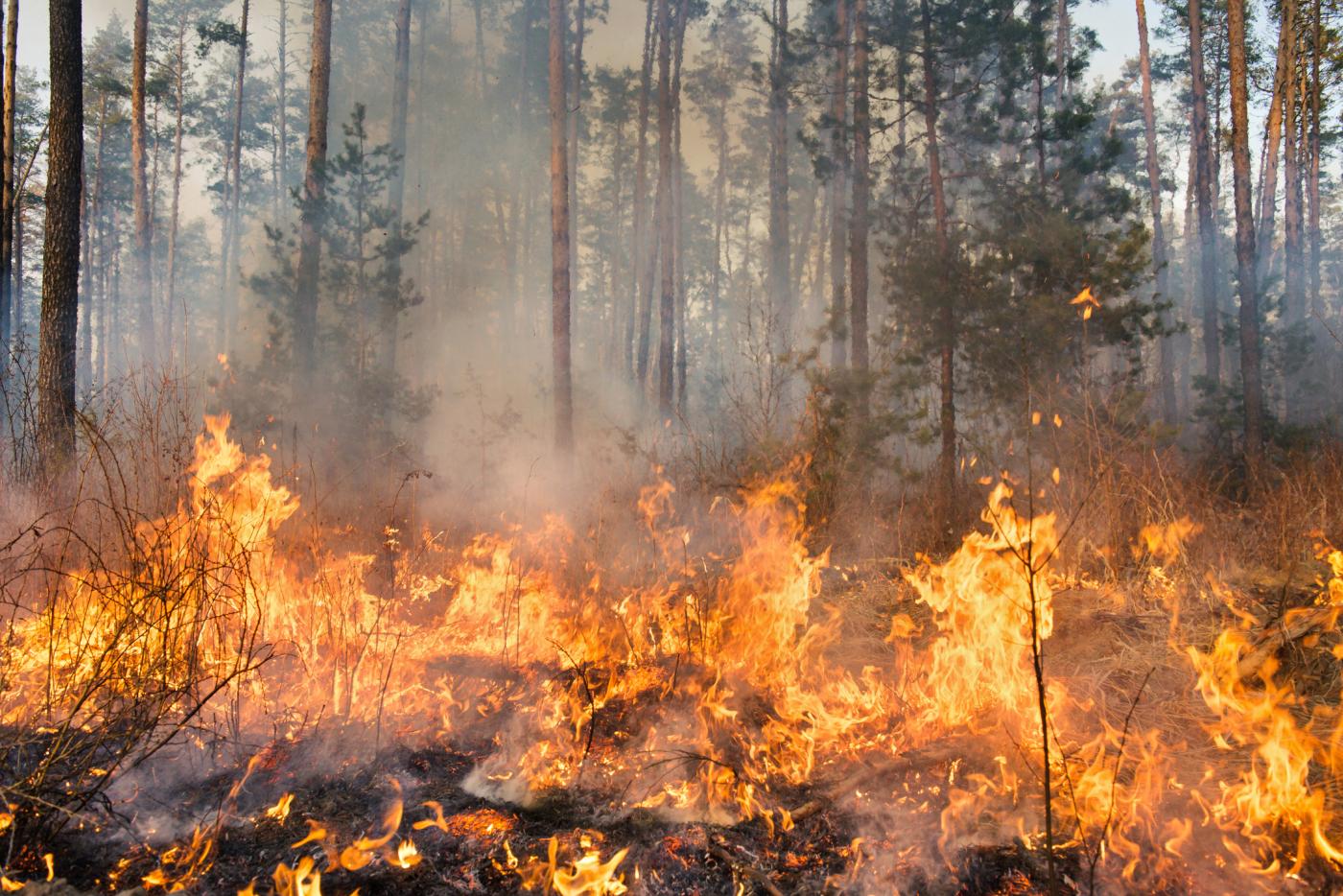Author: Meredith Hemphill
We often associate wildfires with the west coast states, but did you know that wildfires are a significant feature of the climate in North Carolina, too? Wildfires are a necessary part of certain ecosystems, such as the pine forests of the coastal plain, but they can also be extremely destructive. In 2024, the NC Forest Service recorded 4,588 wildfires that burned 15,706 acres. It’s not possible to predict exactly when and where a fire will start, so it’s important to be prepared at all times, especially during fire season.
North Carolina has a spring and a fall fire season. According to the NC State Climate Office, the spring fire season is between mid-March and mid-April. It’s caused by warming temperatures, longer days and those scattered springtime storms that can leave some areas dry and then spark fires with lightning when they pass that way again. The fall fire season starts in late September or early October and runs into early December. This year, it officially started Oct. 1. In North Carolina, fall temperatures remain warm well into the season, and the leaves falling from trees create a large fuel load for fires. Dry and windy days further increase the risk.
This year, the NC Forest Service has been more concerned about wildfires in North Carolina than usual because of damage from Hurricane Helene. An abundance of dead trees and other flammable debris remains on the ground in Western North Carolina. This excess of fuel may intensify and accelerate the spread of wildfires. Some roads in WNC still remain impassable as well, which can both cut off escape routes and delay firefighters responding to a wildfire.
Fortunately, most destructive wildfires are preventable. Wildfires that start naturally in this region are usually the result of lightning strikes, but according to the National Park Service, nearly 85% of wildfires in the U.S. are started by humans. The human causes of wildfires include unattended campfires, fireworks, downed power lines, discarded cigarettes and acts of arson. In North Carolina, the most common way that people start wildfires is by burning brush or trash in an irresponsible manner. Follow these practices to prevent an out-of-control fire in the first place:
- Check for any local or state burn bans if you’re considering burning brush. These bans are put in place when there is a high risk for wildfires. Make sure you don’t violate them.
- Only burn organic, vegetative material, not household trash. It is illegal in North Carolina to burn anything other than vegetation. Take trash to a garbage or recycling center.
- Keep your burn piles small.
- Do not use accelerants like gasoline to speed up burning.
- Never leave a lit burn pile unattended and have a water hose at the ready.
Even if you are always on your best fire safety behavior, you can’t control other people or the weather, so you should also take measures to be ready for when a wildfire does ignite. As with any emergency, this means making an emergency plan and building an emergency kit for the entire household. An emergency kit should have enough supplies (food, water, toiletries, medications, etc.) to last everyone at least three days. There are also specific considerations for wildfires, especially for those who own a home.
- Sign up for emergency alerts in your area. You can download the FEMA app and add up to five locations that you want to receive alerts for.
- As part of your emergency plan, decide on a room to stay in if you need to shelter in place during a wildfire. It should be a room that can be closed off from all outside air. Keep a portable air purifier in there.
- Add N95 masks to your emergency kit. These can protect you from the negative effects of smoke inhalation.
- Stock items in your home that can be used as fire control tools: a rake, axe, handsaw or chainsaw, bucket, shovel and water hose. These can be used to create fire breaks (areas without fuel to burn) and put out small fires started by drifting embers.
- Keep a fire-resistant zone around your house by clearing leaves, debris and other flammable materials for 30 feet from the walls.
- Clean the roof and gutters often.
- Put screens on vents that open to the outside to prevent embers from blowing in.
- Remove dead branches that spread near or over the home and vines that climb the walls.
These preparatory measures will help you to weather a wildfire at home, but if an evacuation order is issued, do not hesitate to leave. Wildfires can move quickly. Have multiple evacuation routes in your emergency plan in case the fire blocks your first choice. Practicing your evacuation plans ahead of time will reduce stress and confusion should you need to put those plans into action. During a wildfire emergency, local authorities will provide instructions on the safest way to evacuate based on the most up-to-date information.
Resources
• Wildfire | Ready NC
• Wildfires | Ready.gov
• N.C. Forest Service - Fire Safety Outdoors | NC Agriculture

